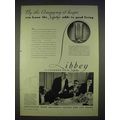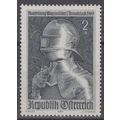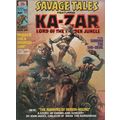Dunfermline - Birthplace of Andrew Carnegie RP c1910
- Condition : Used
- Dispatch : 2 Days
- Brand : None
- ID# : 36162033
- Quantity : 1 item
- Views : 470
- Location : United Kingdom

- Seller : justthebook (+1704)
- Barcode : None
- Start : Thu 16 Dec 2010 20:40:28 (EDT)
- Close : Run Until Sold
- Remain : Run Until Sold
Checks/Cheques
 for 1 item(s) edit
for 1 item(s) edit
Shipping Calculator
More Listings from This Seller view all
Seller's Description
- Postcard
- Picture / Image: Birthplace of Andrew Carnegie, Dunfirmline, Fife. Possibly a real photo
- Publisher: None given (series no. 4069)
- Postally used: no
- Stamp: n/a
- Postmark(s): n/a
- Sent to: n/a
- Notes & Key words: some edgewear and minor curling
------------------------------------------------
Postage & Packing:
UK (incl. IOM, CI & BFPO): 99p
Europe: £1.60
Rest of world (inc. USA etc): £2.75
No additional charges for more than one postcard. You can buy as many postcards from me as you like and you will just pay the fee above once. (If buying postcards with other things such as books, please contact or wait for invoice before paying).
Payment Methods:
UK - PayPal, Cheque (from UK bank) or postal order
Outside UK: PayPal or Google Checkout ONLY please. NO non-UK currency checks or money orders (sorry).
NOTE: All postcards are sent in brand new stiffened envelopes which I have bought for the task. These are specially made to protect postcards and you may be able to re-use them. In addition there are other costs to sending so the above charge is not just for the stamp!
----------------------------------------------
Text from the free encyclopedia WIKIPEDIA may appear below to give a little background information:
*************
Andrew Carnegie was born on 25 November 1835 in Dunfermline, Scotland in a typical weaver's cottage with only one main room consisting of half the ground floor which was shared with the neighbouring weaver's family.[2] The main room would serve as a living room, dining room and bedroom.[2] He was named after his paternal grandfather.[2] In 1836, the family moved to a larger house in Edgar Street (opposite Reid's Park), following the demand for more heavy damask which his father, William Carnegie benefited from.[2] His uncle, George Lauder to whom he referred to as "dod" introduced him to the writings of Robert Burns and such historical Scottish heroes as Robert the Bruce, William Wallace, and Rob Roy. Falling on hard times as a handloom weaver and with the country in starvation, William Carnegie decided to emigrate with his family to Allegheny, Pennsylvania in the United States in 1848 for the prospect of a better life.[3] Andrew's family had to borrow money in order to emigrate. Allegheny was a very poor area. His first job at age 13 in 1848 was as a bobbin boy, changing spools of thread in a cotton mill twelve hours a day, six days a week. His wages were $1.25 per week.[4] Andrew's father, William Carnegie, started off working in a cotton mill but then would earn money weaving and peddling linens. His mother, Margaret Morrison Carnegie, earned money by binding shoes.
In 1850, Carnegie became a telegraph messenger boy in the Pittsburgh Office of the Ohio Telegraph Company, at $2.50 per week, following the recommendation of his uncle. His new job gave him many benefits including free admission to the local theater. This made him appreciate Shakespeare's work. He was a very hard worker and would memorize all of the locations of Pittsburgh's businesses and the faces of important men. He made many connections this way. He also paid close attention to the telegraph's instruments and within a year was promoted as an operator.
Carnegie's education and passion for reading was given a great boost by Colonel James Anderson, who opened his personal library of 400 volumes to working boys each Saturday night. Carnegie was a consistent borrower and a "self-made man" in both his economic development and his intellectual and cultural development. His capacity and willingness for hard work, his perseverance, and his alertness soon brought forth opportunities. At work, Carnegie quickly taught himself to distinguish the differing sounds the incoming telegraph signals produced and learned to transcribe signals by ear, without having to write them down.
Starting in 1853, Thomas A. Scott of the Pennsylvania Railroad Company employed Carnegie as a secretary/telegraph operator at a salary of $4.00 per week. At age eighteen, the youth began a rapid advancement through the company, becoming the superintendent of the Pittsburgh Division. Scott also helped him with his first investments. In 1855 Carnegie invested $500 in a successful firm called Adams Express. The money was secured by the act of his mother placing a $500 mortgage on the family's $700 home.[5] Later he invested money in Pullman sleeping cars for the Pennsylvania Railroad Company and bought part of the Pullman Company.[6] This turned out to be a very profitable investment. Reinvesting his money in railroad-related industries: (iron, bridges, and rails), Carnegie slowly accumulated capital, the basis for his later success.
a
Listing Information
| Listing Type | Gallery Listing |
| Listing ID# | 36162033 |
| Start Time | Thu 16 Dec 2010 20:40:28 (EDT) |
| Close Time | Run Until Sold |
| Starting Bid | Fixed Price (no bidding) |
| Item Condition | Used |
| Bids | 0 |
| Views | 470 |
| Dispatch Time | 2 Days |
| Quantity | 1 |
| Location | United Kingdom |
| Auto Extend | No |


















